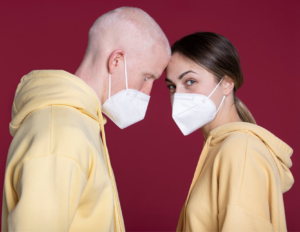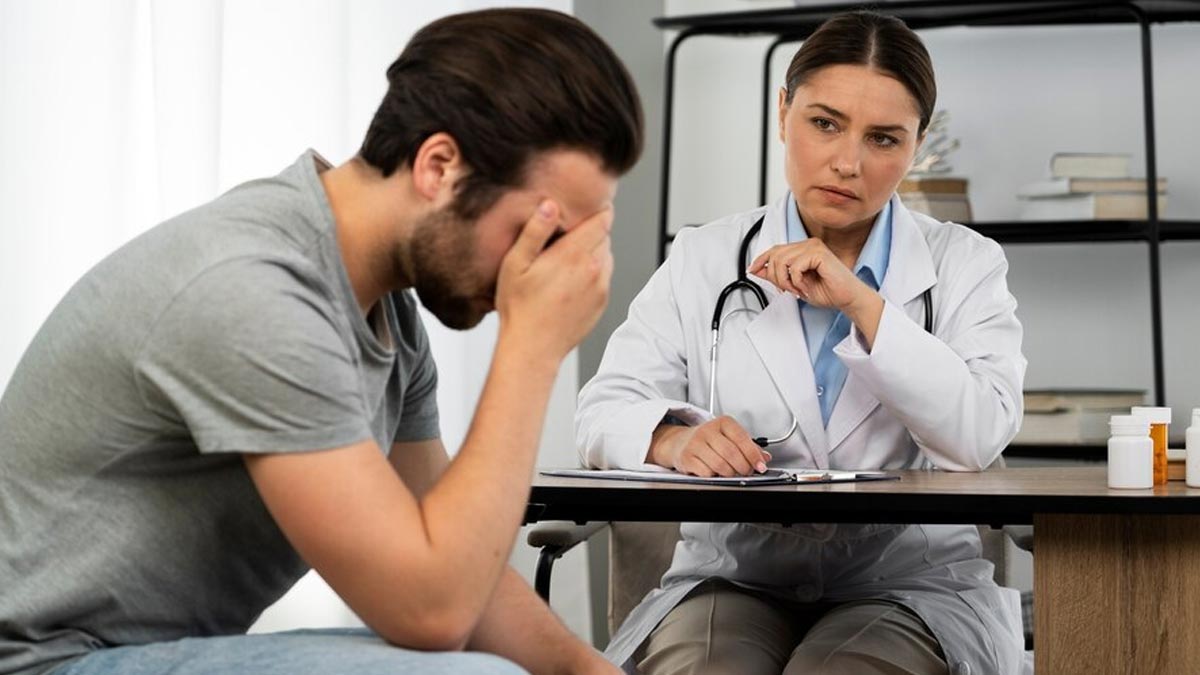Sexual transmitted infections (STI) are infections transmitted from character to character thru sexual contact. These infections can be bacteria, viral or parasites and have an effect on millions of people around the sector.
STI will have severe fitness effects if they are no longer dealt with. Understanding their reasons, signs and remedies can help prevent and preliminary approaches.
To find out about sexually transmitted infections, learn how to guard yourself and to be had remedy options.
Sexually Transmitted Infections: An Overview

Sexual transmitted contamination infections are manifested specially through sexual contact. They can affect absolutely everyone regardless of age, gender or way of life.
Sexually transmitted infections include not unusual diseases such as chlamydia, gonorrhea, syphilis and HIV. These infections will have moderate to severe signs and symptoms and could be tangible for years.
What Are Sexually Transmitted Infections?
Sexually transmitted infections, also known as path, are infections that spread through vaginal, anus or oral sex. Some STDs can also be sent to blood transfers, shares of needles and also from mother to child during the child’s birth.
Sexual transmitted infections are caused by bacteria, viruses or parasites. Each type requires different treatments and management strategies.
Types of Sexually Transmitted Infections

Sexual transmitted infections are classified based on their causes:
Bacterial path – chlamydia, gonorrhea, syphilis
Viral path – HIV, HPV, herpace, hepatitis B
Parasitic path – trichomoniasis, gender house
Each type has different symptoms and treatment methods, which require initial diagnosis.
Symptoms and Risk Factors

The symptoms of sexually transmitted infections are different, and some infections remain silent for a long time.
The risk of sexually transmitted infections increases with many sexual partners, uncertain gender and lack of regular medical examination.
Common Symptoms of Sexually Transmitted Infections
Painful urination
Abnormal sex discharge
Gender wounds or ulcers
Pelvic pain
Itching or burning
Some sexually transmitted infections have no noticeable symptoms, causing regular testing.
Causes and Risk Factors of Sexually Transmitted Infections
Sexual transmitted infections spread through sexual fluids, skin contact and blood. Risk factors include:
Related to insecure sex
To be many sexual companions
Use of medicines with shared needles
Weakened immune system
Sexually Transmitted Infections: Testing and Diagnosis

regular screening for sexually transmitted infections helps detect infection and prevent complications.
The test includes blood samples from affected areas to identify specific infections, urine samples and swabs.
How Are Sexually Transmitted Infections Diagnosed?
Diagnosis depends on the type of suspected sexually transmitted infection. Common methods include:
Blood test – HIV, syphilis and hepatitis B detects
Urine sample – used for chlamydia and gonorrhea
Water -stick -Testing – Identify HPV and Herpes
Testing for sexual active individuals is recommended, especially with new or more partners.
Sexually Transmitted Infections: Treatment and Prevention
Many sexually transmitted infections can be treated, while others can be effectively administered with proper medical treatment.
Preventive measures, including safe sex practice and vaccination, reduce the risk of significantly transferable infections.
Treatment Options for Sexually Transmitted Infections

Bacterial path – treated with antibiotics (chlamydia, gonorrhea, syphilis)
Viral path – administered with antiviral medicines (HIV, herpace, HPV)
Parasitic path – treated with prescribed medication (trichomoniasis, gender house))
Early treatment is important to prevent complications and spread further.
Prevention Strategies for Sexually Transmitted Infections
To reduce the risk of sexually transmitted infections:
Always use condoms and tooth ponds
Vaccination against HPV and Hepatitis B
Test regularly for trail
Limit the number of sexual partners
Safe sex practice and awareness play an important role in reducing the infection rate.
FAQs
Bacterial and parasitic STIs can be cured with medication, while viral STIs require ongoing management.
What Should I Do If I Suspect an STI?
Visit a healthcare provider immediately for testing and treatment.
How Often Should I Get Tested for STIs?
Testing frequency depends on sexual activity, but annual screening is recommended.
Can I Get an STI Without Having Sex?
Yes, some STIs spread through blood, skin contact, and childbirth.
Are Home STI Tests Reliable?
Home tests can be accurate but should be confirmed with professional medical testing.
What Happens If an STI Is Left Untreated?
Untreated STIs can lead to severe complications, including infertility, organ damage, and increased risk of HIV.
Can You Get an STI from Kissing?
Some STIs, such as herpes and syphilis, can be transmitted through kissing if sores are present.
Do Condoms Completely Prevent STIs?
Condoms significantly reduce the risk of STIs but do not provide 100% protection, especially against skin-to-skin transmitted infections like HPV and herpes.
Final Thoughts
Sexual transmitted infections are common, but prevention with right awareness and precautions. Regular screening, safe sex and vaccination play an crucial position in reducing the danger of contamination.
If you believe you studied a path, are seeking for a doctor without delay. Initial detection and treatment assist to prevent extreme health headaches. Be informed and take lively steps to protect your fitness.
Understanding sexually transmitted infections lets in people to make knowledgeable selections about their sexual fitness. By prioritising schooling, checking out and prevention, we will together reduce the spread of those infections and sell standard welfare.



